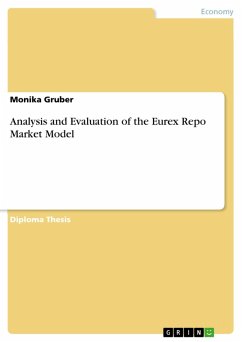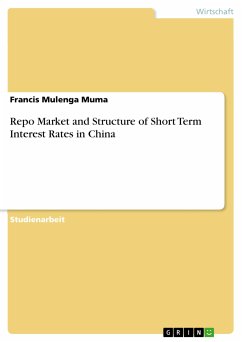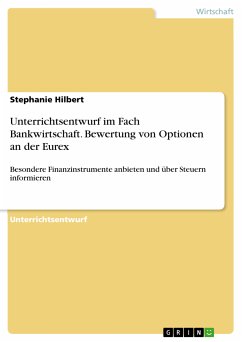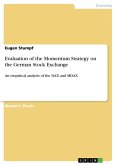Diploma Thesis from the year 2004 in the subject Business economics - Banking, Stock Exchanges, Insurance, Accounting, grade: 1,3 (A), University of Innsbruck (Banking & Finance), language: English, abstract: Europe is a leading world centre for financial markets alongside North America and the Far East. European securities exchanges play a vital role in these markets by providing companies with the opportunity to raise capital and by giving both private and institutional investors the opportunity to invest. There have been three major developments that characterise the changes in the European Exchange landscape over the past twenty years: the globalisation of financial markets, the revolutionary developments of technology, and European regulation. A growing number of companies and banks wish to raise capital in more than one country. Investors too are looking at integrated or interconnected international markets in order to maximise their return and spread their capital risk. Long term developments such as the introduction of the euro, the spread of privatisation, the growing number of pan-European mergers and the rise of the retail investor have encouraged closer cooperation and, in some cases, the integration of Europe's formerly diverse and separate equity markets. At the same time, over the past decade, every European exchange membership has undergone a major transformation. Most have opened up to foreign-owned intermediaries. Trading is executed electronically, often from overseas. European securities exchanges have risen to these challenges in a number of ways. Several exchanges increased the number of hours during which trading can take place to enhance access. They also introduced market-making and block-trading to increase liquidity. Additionally, order handling and execution systems were refined in order to boost efficiency and to reduce settlement times. Most exchanges also improved information systems to increase transparency and access. By developing new and imaginative investment instruments investment options have been enhanced. Thus, the European exchanges of today rightly present themselves as modern, high-tech enterprises. In several European countries, whole securities market services groups have grown around the traditional exchanges. With very few exceptions, the national derivatives markets are generally found today under the same roof as the national cash markets. Some of these groups even integrated their national clearing and settlement institutions, their IT provider, information distribution services and others. [...]
Dieser Download kann aus rechtlichen Gründen nur mit Rechnungsadresse in A, B, BG, CY, CZ, D, DK, EW, E, FIN, F, GR, HR, H, IRL, I, LT, L, LR, M, NL, PL, P, R, S, SLO, SK ausgeliefert werden.









